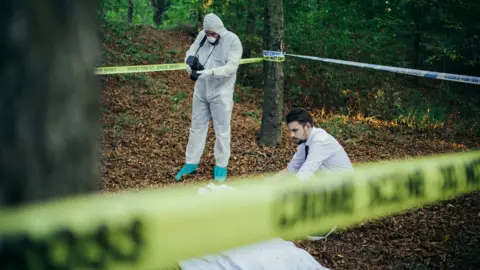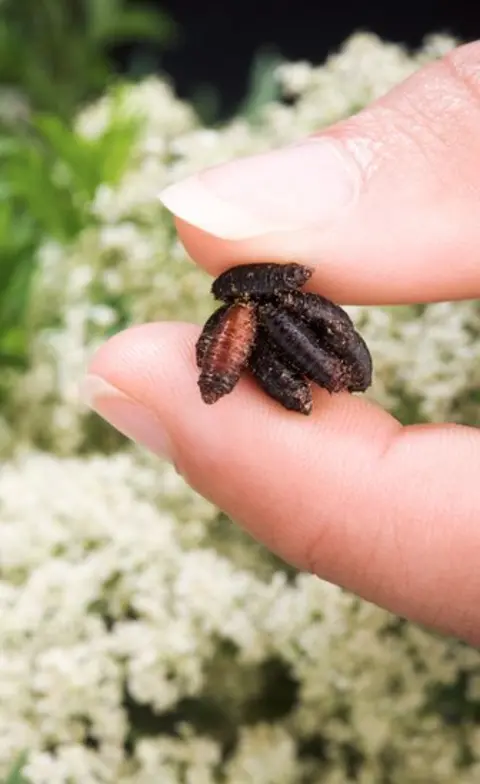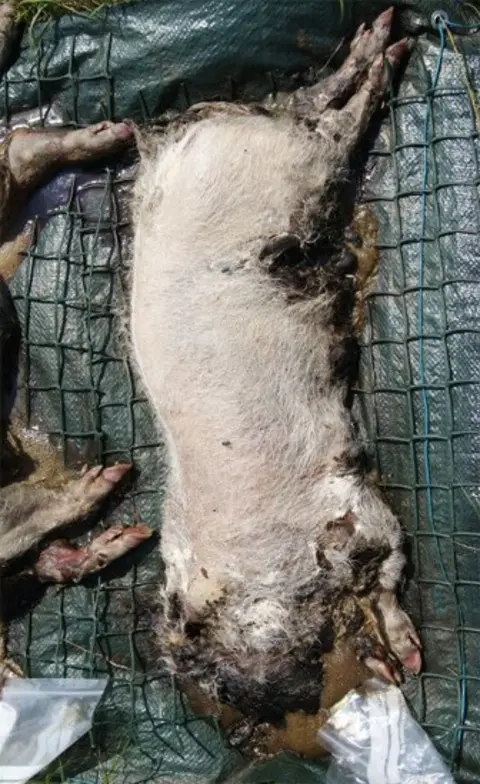Does the UK need a human 'body farm'?
 Getty Images
Getty ImagesYou are dead. Now what?
It's the start of a fascinating and eventful - if gory and smelly - journey, at least for your body as it decomposes.
Understanding decomposition can hold the key to solving murders, finding missing people and crucially recognising them, and that is why "body farms" exist.
Body farms are essentially outdoor laboratories where experiments using donated human cadavers investigate taphonomy - the science of decomposition.
Worldwide there are several such facilities: one in Australia, the others are in the US. But now UK scientists, including Dr Anna Williams from the University of Huddersfield, are lobbying for one in the UK.
This page contains some images a number of readers might find disturbing.
At the British Science Association's annual Science Festival this week in Brighton, Dr Williams presented on the importance of body farms to science and why she believes a UK facility is needed.
"Much of what we know about human decomposition was discovered in US body farms," she said.
 SPL
SPL"We know that the sequence of events in decomposition proceeds along the same path regardless of where the body is, but the timing is very different depending on many factors - moisture, temperature and insects are probably the most important."
But more nuanced factors may also influence decomposition - "such as bacteria already on, and in, the body; whether the person was obese, had been on antibiotics, was diabetic, or even whether they were a vegetarian or not."
So decomposition is anything but simple. And add in to the mix the fact that the bodies of murder victims can be found on a woodland floor, sealed in a suitcase, buried in a shallow grave, encased in concrete, burnt, dismembered, naked, clothed, wrapped in plastic, and so on.
Traumatic injury is also variable: gunshot wound, stabbing, hanging… the list goes on.
Body farm advocates point out the benefits of such facilities, including training dogs to sniff out dead bodies, recognising facial features and ancestry after decay, and even helping to work out how fingerprints change and whether DNA can be recovered after varying intervals of decomposition.
But what about the classic detective question on finding a dead body: "Time of death"?
This is much more difficult to pin down than TV dramas would have you believe, especially a few weeks and more after death.
Medical examiners often use insect colonisation on the body, but this is notoriously unreliable to apply from place to place as it depends on fickle local weather conditions.
 Anna Williams
Anna WilliamsExciting new data published last year in the journal Plos One suggests that the succession of bacteria that come and go, feeding on the decaying body, may help scientists to more accurately pinpoint post-mortem interval.
This discovery was made by analysing bacteria scraped from the nose and ear canals of decomposing cadavers at the world's first body farm in Tennessee.
In the UK, all decomposition experiments use animals - usually pigs.
This does have some advantages. Most obviously, rotting animals in our countryside is not as objectionable to people as rotting humans. Indeed, it might be a challenge getting a local community to accept a body farm in its area.
The other advantage is that when pigs are used, multiple experiments can be set up where the conditions prior to decomposition can be varied to show different outcomes. This has not been the case with human experiments.
As Dr Patrick Randolph-Quinney from the University of Central Lancashire explained, the number of human bodies used in experiments has rarely exceeded three or four individuals, and this limited number will not catch all of the possible outcomes of decomposition.
"It's little more than anecdotal observation without any real understanding or prediction of underlying processes - you might call it 'anecdata'," he told BBC News.
But, on the flipside, there are big disadvantages to using pigs. Firstly, we really don't know whether pigs decompose similarly to humans, and whether they are a good substitute to use. This is being actively investigated in the newly opened Australian body farm.
The results are eagerly awaited. But as Dr Williams said in her presentation at the science festival: "There can be no better substitute for humans in understanding human decomposition".
Dr Williams firmly believes that a UK body farm facility will allow forensic science to flourish in Britain, producing new data on decomposition bespoke to our climate and situation.
But she cautioned: "We need academics to collaborate and share data across the UK, and across the world - that way experiments have the best chance of being rigorous with larger sample sizes."
Dr Randolph-Quinney has a further ambition: "If we imagine a game of 'fantasy taphonomy', where we had enough money and resources to investigate human decomposition properly, we wouldn't necessarily use outdoor facilities."
"We might build a grave in the lab, where we could adequately control experimental variables such as temperature, humidity, and recover all the products such as body fluids, DNA, organic gases that a body gives off after death.
"This would allow us to model and predict the underlying processes in a scientific way. We can't do that at present."
Either way human body donations are required. This may not be a big problem: at both US and Australian facilities there is a waiting list of living donors ready, upon death, to give their body to forensic science.
